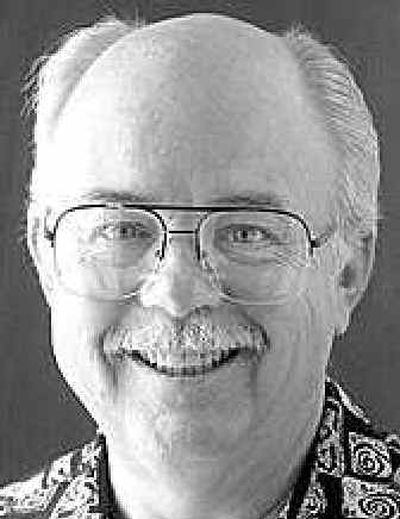‘Prodigal Son’ illustrates way out of wastefulness

‘There was once a man who had two sons. The younger said to his father, ‘Father, I want right now what’s coming to me’…”
And so begins what I believe is the most powerful story Jesus tells in any of the Gospels.
It’s actually a good thing the father only gave the son what the son was begging for, rather than “what’s coming to me.” He asked for his portion of his inheritance.
In those days, inheritance definitely wasn’t distributed until after a person dies. By not wanting to wait that long, the younger son effectively said: “Father, I wish you were dead. But even if you aren’t, I want what I want when I want it.”
Astonishingly, the father didn’t give the son what he had coming to him, but what he asked for.
You know the next part of the story. The son wasted his inheritance in some gentile (non-Jewish) country, then used his survival instinct to swallow his pride and hoped against hope his father might hire him as a common worker on his farm.
He wasted his money, he wasted a portion of his life, and he wasted (or so he thought) his relationship with his father. Thus we know him as the Prodigal – the one who is “rashly or wastefully extravagant.”
But I have contended for many years that he isn’t the only prodigal son in this story.
The elder brother was the “good” brother who dutifully stayed home, worked beside his father on the farm, did everything expected of him as the elder child. His wastefulness may not have been as extravagant as his brother’s. He didn’t waste his money. But he did waste a portion of his life and his relationship with Daddy.
And he didn’t even realize it. At some level, that may be more tragic than his brother’s story.
Read his overblown reaction to the homecoming party for his no-account brother (last part of Luke 15). All the time his brother was gone, the elder son never realized the love of his father. He knew only duty. He wasted so much.
This very brief story covers a sibling rivalry, disgusting sibling insensitivity to a parent, and an incredible unconditional love of a father for his sons.
Jesus captures the essence of how God chooses to deal with the “human condition.” Even the waste of personal choices and relational choices are offered the way of radical transformation.
As I read any day’s newspaper, I see so much waste reported, dramatized, photographed. In everything we read – from the front page to the last page of advertisements – we see actual lives and resources wasted. Or we see the agonizing potential of lives and resources wasted if the same course is taken.
We live in a country where political decisions are made daily that create and/or accelerate the potential for wasted lives and resources. Look at your own newspaper. Listen to your own television news. You will see the waste of political power at any number of levels.
I refer certainly to political decisions by our elected officials, from national to local governments. But politics is the way we work with one another in any social setting. So we can easily see wasted political decisions right in our own homes, in community organizations, in churches we might belong to, in our workplaces.
Find your own example of waste in the political arena you know best. Or look at some community, state or national issue. (It’s easier to do this exercise the farther away you are from the actual political decision, isn’t it?)
What wasteful use of power do you see? What waste of money or human dignity do you see? Look beneath the headlines.
We live in a country filled with “prodigal politics.” That’s so easy to identify. At least it’s easy if we just stop at what is being wasted.
It’s easy to see how the two brothers wasted their lives – one through rebellion, one through dutiful obedience. It may be harder for us to see beyond the wasted lives to recall how transformation happened for one son, while the other son didn’t even realize transformation was needed.
Do you remember how Jesus told of a tax collector who cried out, “Be merciful to me, a sinner!” while a religious leader contemptuously thanked God he was not like that sinner or certain other types of sinners? (Luke 18)
Jesus goes on to say the taxman, not the Pharisee, “went home and made right with God.” This truth is at work every day.
Self-awareness always was and is key to the power of transformation. This is true with individuals. It is true when we deal with issues in society.
There is so much more to be said about the implications of prodigal politics. But the space in this column is so limited. There is so much to be said about the dangerous dance we all are prone to be drawn into when we want something so much we will risk wasting our souls to get it.
Each of us is a political prodigal at some time in our lives, maybe many times. But when we embrace the radically hospitable Father in whom we live, we choose to admit our fear-driven wastefulness and let it be transformed. As we too are transformed.